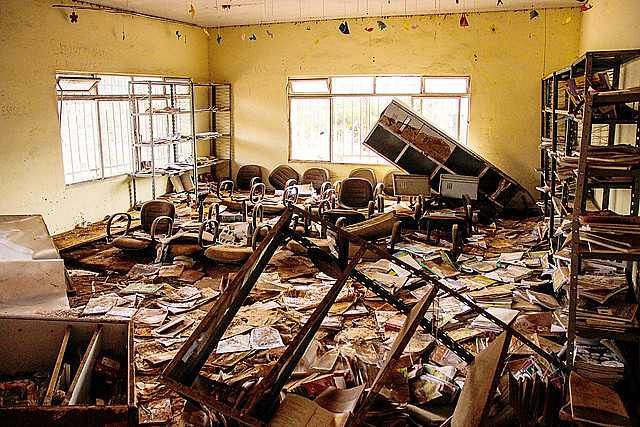Two years after the worst environmental tragedy in Brazil’s, residents continue to recover from the devastating impacts caused by the Samarco dam disaster, which destroyed entire towns and villages, releasing 50 million cubic meters of iron-mining waste and toxic sludge along the Doce River.
During the immediate aftermath, thousands of residents from rural communities such as Bento Rodrigues and Paracatu de Baixo were forced to flee from their homes and relocated to temporary housing structures in nearby city centers.
However, most of these families have yet to receive any sort of legal compensation for the avoidable damages caused by the Samarco iron ore mine spill.
"I imagined a very different future," said Júlio César Salgado, a displaced resident from the community of Bento Rodrigues.
Currently, there an estimated 300 families in Bento Rodrigues and Paracatu that remain exposed to degrading living conditions.
"My entire life has been completely put on hold. All of my dreams, aspirations and expectations of tomorrow have been suspended," resident Luzia Queiroz of the rural community Paracatu de Baixo told Brasil de Fato.
In efforts to achieve much needed assistance, families are engaging in slow-moving legal battles in order to obtain basic financial guarantees and insurance for compensation, and the use of safe technologies for containing waste.
Both international and domestic civil society groups criticized Samarco for its lack of due diligence and for its inadequate response in the immediate aftermaths of the disaster.
In an interview with Marino D’Angelo, a displaced resident from the rural community of Bento Rodrigues, described her interaction with a Samarco official immediately following the environmental disaster.
"One day, one of the engineers from Samarco came to visit me at my home to evaluate the damages that were caused by the spill. When he arrived, he said that minimize the devastation, claiming that only a tiny bit of toxic mud had entered my home," D’Angelo stated.
Shortly after the environmental tragedy, as part of their criminal investigation, authorities carried out searches on the premises of the Samarco headquarters, in which they collected copies of emails and internal company messages, determining that company executives were aware about the impending risk of the dam breaking.
A 2013 report conducted by The Instituto Pristino, linked to the Federal University of Minas Gerais, warned of structural design flaws and predicted the circumstances that could lead to a dam burst at the Samarco operation.




